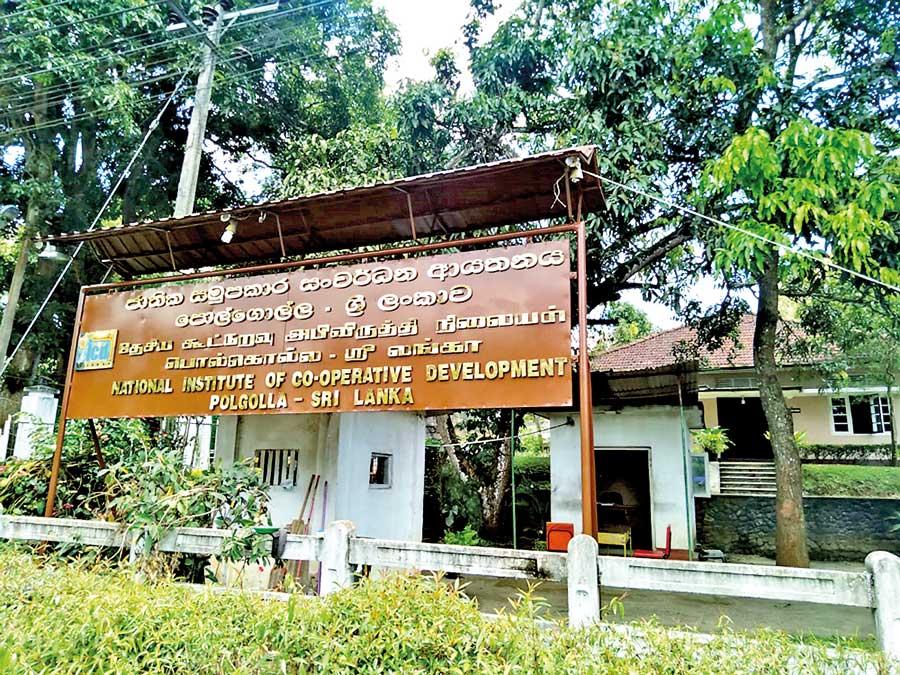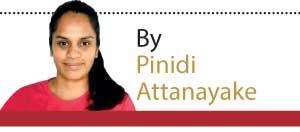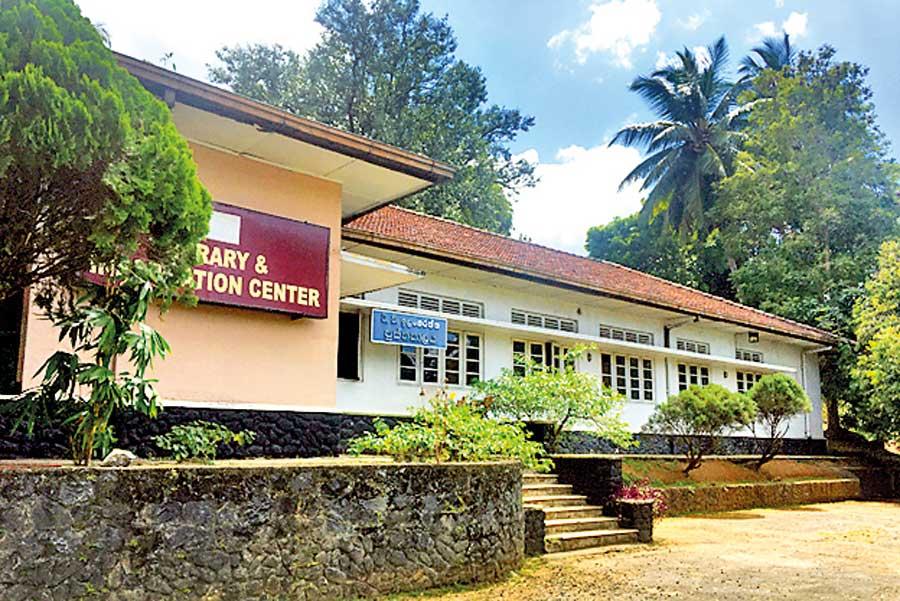12 Jan 2024 - {{hitsCtrl.values.hits}}

The National Institute of Cooperative Development (NICD)
National Institute of Cooperative Development (NICD) was formally called the Cooperative School. NICD is the only institute in Sri Lanka that offers training and education in the Cooperative Sector. Critics pose the question what would happen to the Cooperative movement if NICD loses its premises at Polgolla? If this 22-acre training institute moves away into a single-storey building would the institute function efficiently as of now?
education in the Cooperative Sector. Critics pose the question what would happen to the Cooperative movement if NICD loses its premises at Polgolla? If this 22-acre training institute moves away into a single-storey building would the institute function efficiently as of now?
A.B. Bulathgama, a former lecturer at Cooperative School and an active member of the Cooperative movement, said that the Cooperative School is a voluntary organization which was established in 1943 in Polgolla, Kandy. He added that the law of Cooperative Thrift Credit Cooperative Society Ordinance No 07 of 1911 was initially introduced to the Cooperative Sector. He said that the reason behind establishing the Cooperative movement is to create a safe and secure place for books, reports and audits that are useful in learning about this sector. “The main function of the NICD is to train the Cooperative staff using qualified tutors so that they can provide a better service. The NICD provides educational and training facilities for the cooperative sector,” said Bulathgama. This institute teaches
|
A former lecturer at Cooperative School and an active member of the Cooperative movement, A.B Bulathgama |
accounting, banking, legal and management which are specialised areas in the cooperative sector; which are often studied by the cooperative department officers. The middle and upper officers such as general managers, accountants and human resource managers in the Cooperative societies make those societies a success after learning these subjects. These subjects relevant to the Cooperative sector are taught only at the NICD at Polgolla. Almost every country has at least one training centre for the Cooperative Sector and this is the only national level Cooperative training centre in Sri Lanka. This institution has made a huge contribution to the society by lending its premises during the COVID-19 pandemic as a prevention centre. Whenever a problem arises in the public the NICD is capable of offering facilities to solve it because of the large land area it is built on. If this facility is shifted to a single storey building these charity services would be interrupted as well.
In 1930 the Cooperative department was established and Cooperative officers were recruited. As a result, the need for a Cooperative college increased. A college was opened in the Western Province for a period of two months. In 1945, this was developed and expanded and is currently placed in Polgolla. A treaty was called between the government of Ceylon and the government of Canada for Cooperative Development. As a result, Canadian funds were received for the Cooperative movement.
According to the concept of privatization mooted by the government, the land belonging to the NICD has been picked to be sold so as to generate a better income for the government. The institute will not be closed down, but the land will be sold. The land belongs to the government. Most of the buildings are owned by the Cooperative movement and some were built thanks to donations from the cooperative movement. This is the only institute that conducts examinations for the benefit of the cooperative sector. The NICD also welcomes other trainers. Not only government programmes, but private programmes including university programmes are conducted. A cabinet decision was taken to implement the privatization of the NICD. To make the final decision, the Prime minister has appointed a four-member board. No specific evidence or reasons have been provided to explain why the land is to be sold. Also, the NICD has earned its targeted profit for 2023; therefore the government has no reason to privatise the land.
An official of the Cooperative Movement said that if the 80-year-old Cooperative Development Institute is going to be shifted to a smaller place on Galle Road, this institute would fail to function efficiently due to the minimum space provided. The institute conducts more than 09 diploma courses 05 certificate courses and 35 short-term courses to enhance the skills of students. The NICD boasts of having the largest auditorium in the Kandy District and has 1200 seats. It is named ‘Mahinda Rajapaksha Auditorium’ in Kandy District. The library is
|
The ICT lab with 55 modern Computers. |
considered the most advanced one of its kind with modern facilities in the Co-operative sector. The other section is to facilitate ICT education for school leavers and those learning to be IT professionals. This facility consists of 55 modern computers.
Moreover, the environment around the NICD is eco-friendly. The Mahaweli River flows in front of the institute. It is surrounded by a range of mountains which adds beauty and pleasing weather. The institution has a calm and quiet environment that makes the learning process convenient for students. In contrast, the new place that will be allocated to house this facility in Colombo will be more commercialised and busier. This new place will not provide students with a calm and peaceful learning environment.
Bulathgama highlighted the service provided by the institute and affirmed that they will not be able to perform in the same manner once they shift to Colombo. The concerned public query whether the NICD should be moved away from Polgolla?
The NICD belongs to the Ministry of trade, Commerce and food security. Additional Secretary of Administration D.Jeevanadan said that there are no plans to sell the land where the NICD is located at present. But according to the restructuring of national cooperative movement and related line institutions under 4.4 of the cabinet memorandum issued on 2023.08.24, it is said that the NICD will be shifted to Sri Lankan National Cooperative Council (NCC) at Colombo 03 to increase its efficiency. Therefore many ask whether the land where the NICD is housed is really going to be sold?

The largest Cooperative Library in South Asia.
04 Jan 2025 3 hours ago
04 Jan 2025 3 hours ago
04 Jan 2025 3 hours ago
04 Jan 2025 5 hours ago
04 Jan 2025 5 hours ago